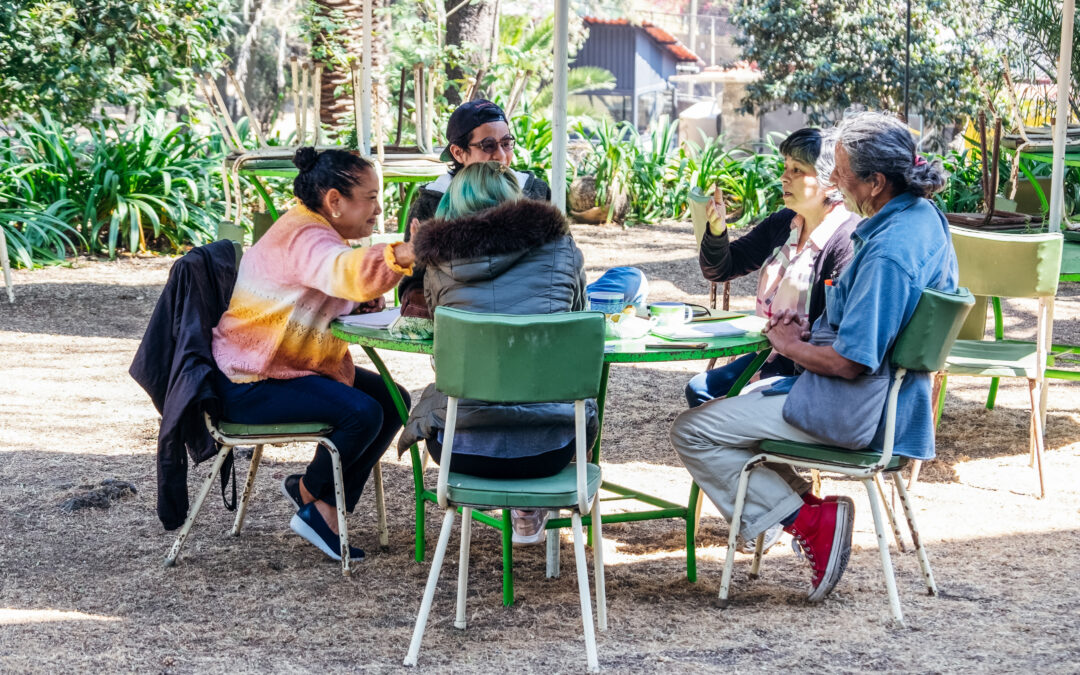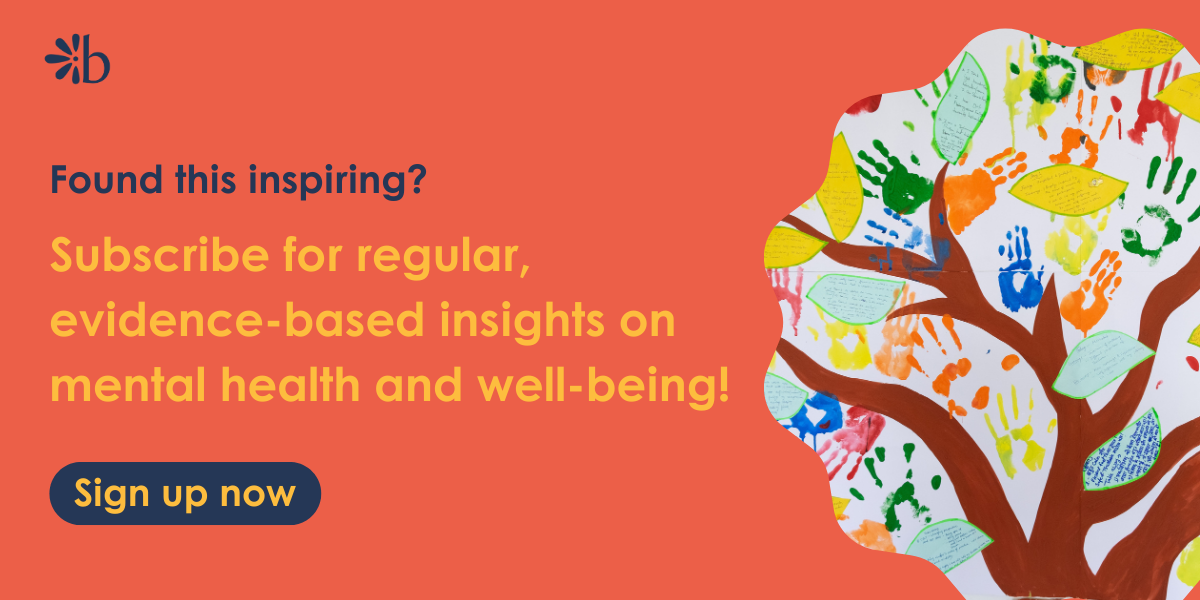When we cultivate mental health in community contexts, we bear witness to its ever-growing transformational potential.
At an individual level, mental health offers not only a softening of the effects of pain and hardship, but also the experience of greater agency in everyday life. At an interpersonal level, mental health increases our capacity to connect with others with more openness and curiosity, while showing up as our whole selves. At a community level, we experience the broadening of our care for each other, increasing our ability to respond to our collective pain and seek collective healing.
But what if mental health can also liberate our societies from oppressive forces, reimagining how we relate to ourselves, each other, and the wider world?
Liberation psychology can facilitate freedom at the societal level.
One of the originators of liberation psychology, Ignacio Martín-Baró, wrote, “The task of liberation psychology is to contribute to the construction of a new reality, a new consciousness, and new ways of relating to ourselves and to others.” This comprehensive vision of renewal is critical for mental health to truly contribute to the change our world desperately needs.
At its most transformational, mental health directly addresses not only personal and intimate challenges, but also the painful realities that marginalized communities face: oppression and injustice, institutionalized racism and sexism, the legacy of colonizing and being colonized, and intergenerational trauma. And it is crucial to avoid dualistic thinking here— all of us have these devastating experiences in our lineage. There’s something here for all of us.

4 liberation psychology principles for community mental health
How we apply liberation psychology principles
First, where did liberation psychology come from? Liberation psychology originated primarily in Latin America during the 1970s and 1980s. It was a reaction against the dominant psychological paradigms of the time, which were criticized for being too individualistic and disconnected from the socio-political contexts affecting people’s lives. Key developers and writers include Ignacio Martín-Baró, Paulo Freire, María Elena Álvarez-Buylla, Ana María Fernández, and Luis C. Villalobos.
Unlike Acceptance and Commitment Training, the evidence-based approach we use to strengthen psychological flexibility, liberation psychology is not a “framework” for treatment. Rather, it is a set of principles and postures that can be practiced in any mental health setting. We might think of Liberation Psychology as a philosophical orientation with some strong practical applications.
In community mental health contexts, there are key ways in which liberation psychology principles can be applied. At Brio, we integrate a handful of principles into our design process with community-driven organizations. Together with our partners, we developed these practices by reading liberation psychology writings, drawing from clinical experience, and collaborating with community members to refine them.
1. Community-led visioning: virtues of the people and participatory action research
When we begin partnering with communities, we ask not only about their pain and hardship but also about their vision of wellbeing and flourishing. What does it look like to live a good life in your community?
In liberation psychology, this concept is called Virtues of the People. The idea is simple: center what people deeply value if you want to engage in shared liberation. “It is imperative to use the virtues of oppressed peoples when working to improve their lived experience,” writes Edil Torres Rivera in Liberation Psychology: Theory, Method, Practice, and Social Justice.
It is imperative to use the virtues of oppressed peoples when working to improve their lived experience.
Importantly, “virtues” are not always universal to a given community. It’s important to pay attention to power dynamics here; notice who speaks up about shared virtues and why. Where do people agree, and where do they disagree, about what a meaningful life looks like? Can you find threads of commonality and synchronicity?
Another core principle is Participatory Action Research. In the process of conducting listening studies, needs assessments, or program learning and evaluation, we center what matters to participants when it comes to wellbeing. If mental health ultimately facilitates the experience of greater agency and self-determination, then the measure of success becomes whether participants consider the initiatives successful in facilitating better lives for them.
Participatory Action Research “strives to engage communities affected by social conditions of oppression as experts and leaders in discerning, developing, and implementing solutions to problems that affect the quality of their lives,” writes Jesica Siham Fernández.
There are a number of ways to practice this. You might invite participants to share what they find genuinely useful about ongoing gatherings or activities (ask for examples). You might have them define what they want to learn or develop, and how. In the program evaluation process, reference what they’ve shared in the past about what’s important to them: did this help them move in directions they care about? You might facilitate evaluation and learning sessions as gatherings for sharing and storytelling, rather than simply filling out surveys.
Community-led visioning is not prescriptive, and it’s not simply an output or outcome. It’s an ongoing process— so we can always increase the involvement of participant leadership and voice in mental health initiatives.
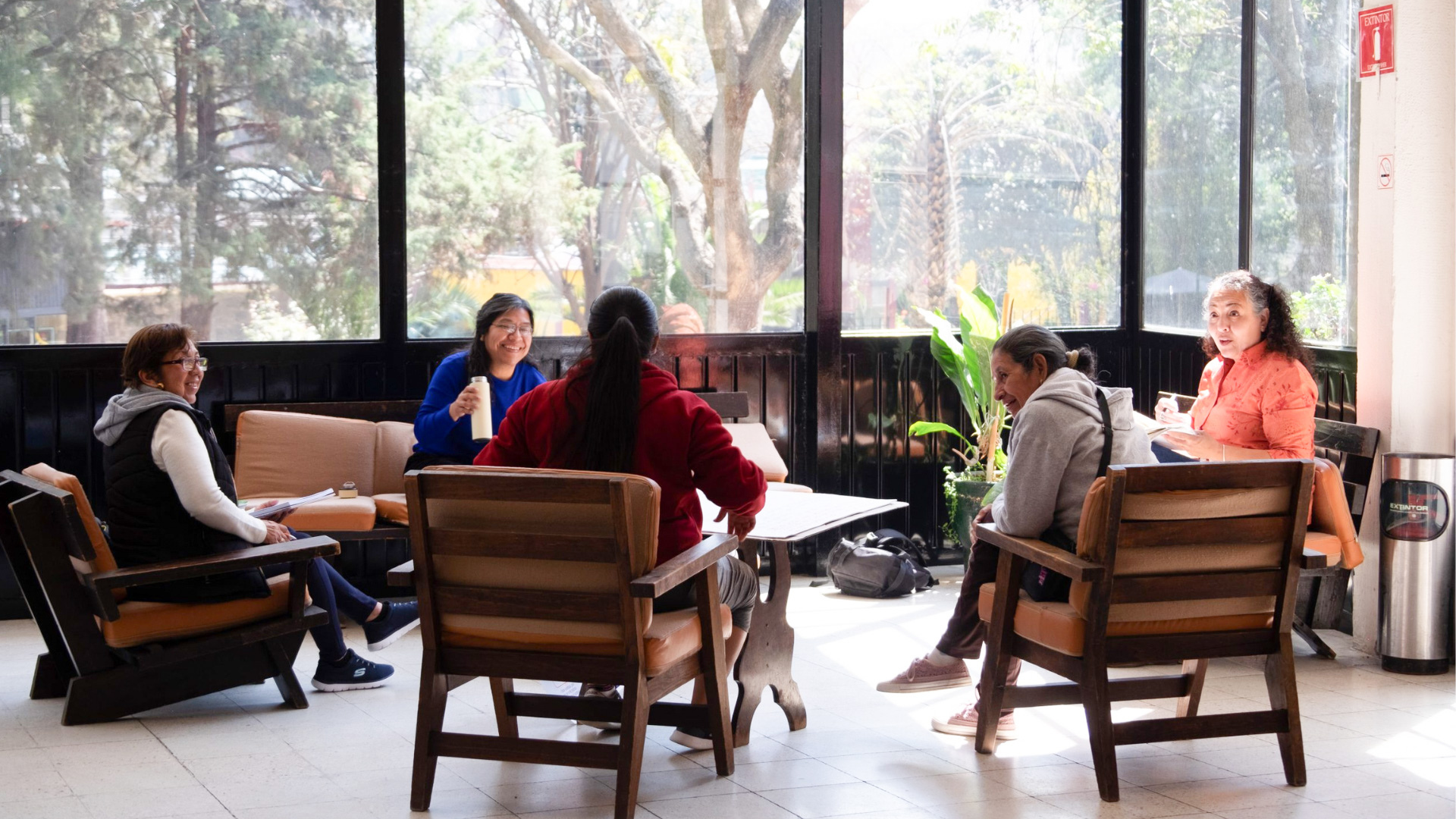
2. Identifying our inner oppressor: de-ideologizing
Nearly all of us can attest to the experience of the “inner critic” or “dictator within” whose voice we hear casting doubt on our worthiness, potential, and sense of possibility. In liberation psychology, this can be understood, at least in part, as the internalized voice of oppression distressing us from within. This voice might sound like a real person we have met, or it has taken on our own voice.
Rather than judging this inner voice or worse—punishing ourselves for having listened to it— we might take a psychologically flexible approach to understanding the function it serves. For marginalized communities and individuals, these voices of warning inside our own minds may serve an adaptive intention to protect us from harm. Step out of line and you’ll get hurt. As detrimental as it is, it makes sense.
But to experience freedom, the process of De-ideologizing means changing our relationship with this inner oppressor-critic. It’s the recognition that the marginalization we experience is not just out there but in here. And we’re not only interested in the external systems and structures that perpetuate oppression and injustice, but what we’ve internalized from lived experience.
People with marginalized identities frequently share that they’ve internalized voices of oppression that have come to control their choices. These voices might say things like:
- “You’re a girl so you can’t be good at science.”
- “You’re destined to be worthless like your brother.”
- “People don’t really want you here, they just pity you.”
- “You’re unintelligent and lack education, you don’t deserve to speak up.”
De-ideologizing involves the critical dismantling of the dominant ideologies that perpetuate social inequalities and hinder the liberation of oppressed peoples. It requires a conscious effort to unmask the ideologies that legitimize and perpetuate injustice.
This is a process, one that can be both challenging and freeing. One of the ways we might do this is to use metaphors about the burdens we are carrying as an individual and as a community. You might ask: What are some of the heavy expectations or assumptions you’re carrying? Do you want to keep carrying it?
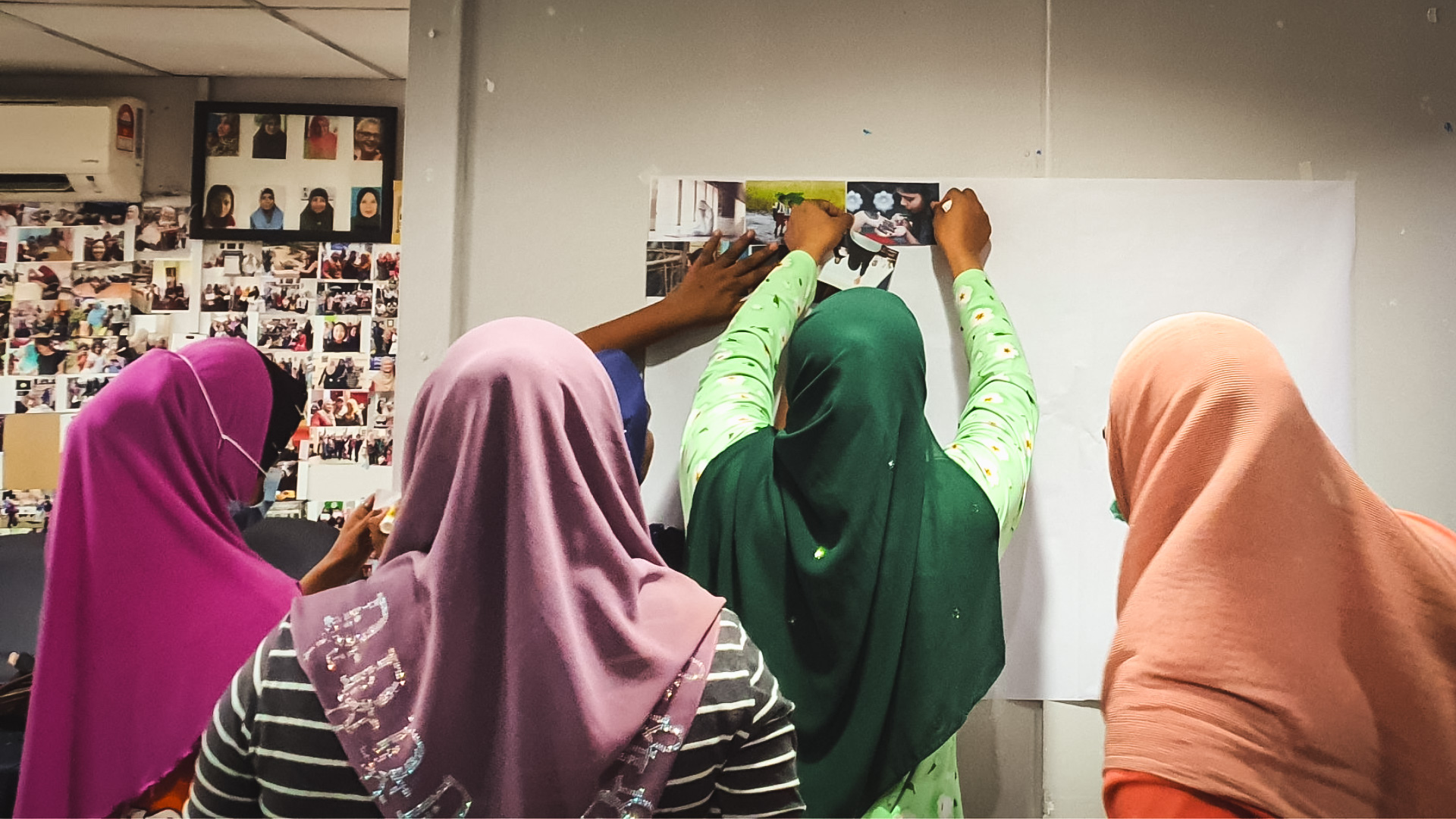
3. Bearing witness with others: testimonios
Storytelling is elemental to the human experience, and critical to seeing and being seen. We’ve written about practical applications of storytelling for mental health here.
In liberation psychology, storytelling is integral not only to process our lived experiences, but to narrate the journey from being oppressed or controlled to being liberated. Perez Huber described Testimonios as “a verbal journey of a witness who speaks to reveal the racial, classed, gendered, and nativist injustices they have suffered as a means of healing, empowerment, and advocacy for a more human present and future.”
Naming the elements of our story is not simply to awaken ourselves and others to our reality. That’s the beginning. The intention, as Huber says, is “healing, empowerment, and advocacy”— there is meaningful action taken first in our dialogue, then in our present, our future, and out in our community.
The practice of testimonios can be powerful not only for those telling but for those bearing witness. In fact, sharing in each other’s experiences creates a sense of solidarity and mutual understanding. Community members then practice perspective-taking, or “self-as-context” in the language of Acceptance and Commitment Training— the ability to see oneself as bigger than the sum of all of the experiences we are holding.
Storytelling in this way is not the same as defining oneself. In fact, it gives us freedom to make changes, to reinterpret our experiences, and ultimately to tell a new story. As we recognize that we are so much more than what others have said to us and about us, then we are able to put those oppressive voices in their proper place. They may have had power over us in the past, but we can choose a new way forward.
Testimonios are a verbal journey of a witness who speaks to reveal the racial, classed, gendered, and nativist injustices they have suffered as a means of healing, empowerment, and advocacy for a more human present and future.
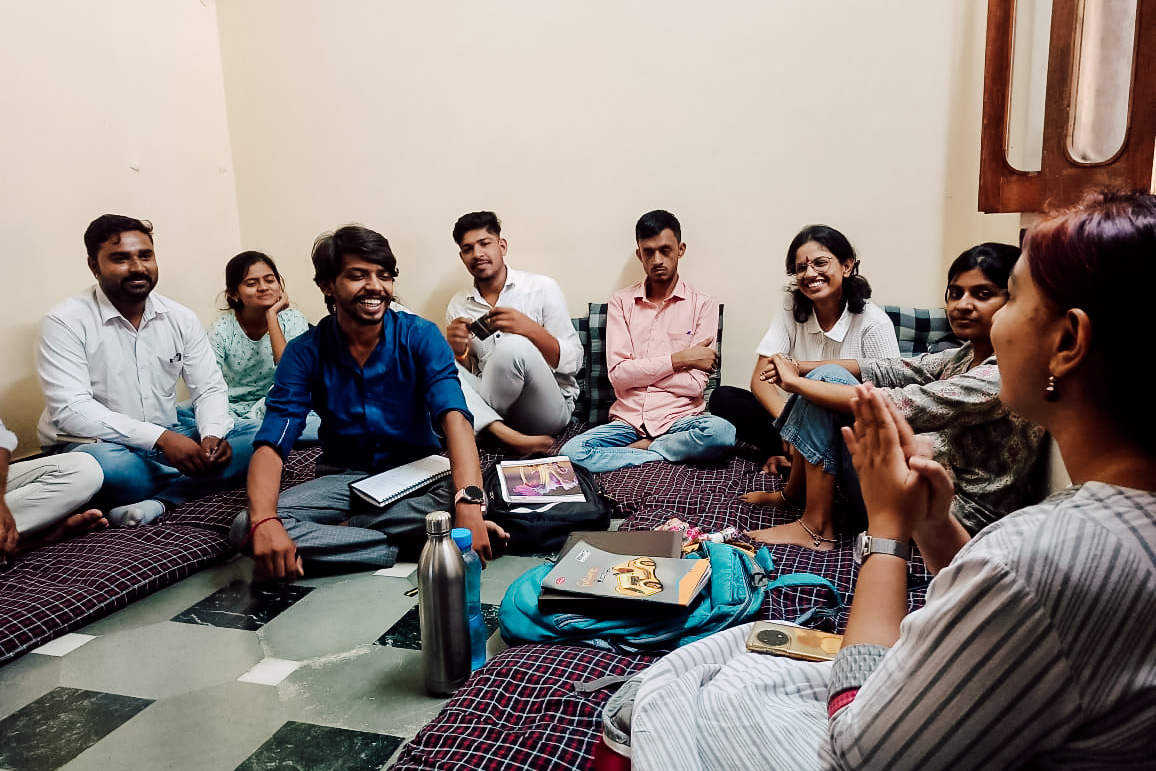
4. Solidarity for today and tomorrow: acompañamiento
“We are bound by [and] to each other, and it is through acompañamiento that we can forge, build, and imagine radical change. We are acompañantes en el andar, companions in this walk; we build the road by walking alongside each other, learning through every mistake and wrong turn, and how we can rise, revise, and root ourselves in the integrity and dignity of our mutual companionship, coexistence, and acompañamiento.” – Jesica Siham Fernández
This deep, mutual form of companionship goes far beyond simply doing things in groups. Acompañamiento, or accompaniment, is a social, psychological and spiritual practice that originated as a term in Latin America during the rise of liberation theology and then liberation psychology— a reorientation of leaders and ministers to join in solidarity with oppressed peoples.
What it means to us today in mental health initiatives is bringing a posture of companionship and mutuality that only community can bring. While it can show up in professional therapy, it is powerful in the community setting because it means we are not just a group of individuals who happen to exist near each other. Accompañamiento is a practice that joins Testimonios in turning our everyday interpersonal relating to a transcendent relating: bearing witness to each other and choosing to journey toward a shared existence, now and in the future.
We are bound by [and] to each other, and it is through acompañamiento that we can forge, build, and imagine radical change. We are acompañantes en el andar, companions in this walk; we build the road by walking alongside each other, learning through every mistake and wrong turn, and how we can rise, revise, and root ourselves in the integrity and dignity of our mutual companionship, coexistence, and acompañamiento.
There are expressions across the world, especially in social change and movement spaces, that identify this sense of shared transcendence. For example, ubuntu, originally from the Bantu languages in South Africa, is often translated as “I am because we are” or “humanity towards others.” The concept encompasses ideas of interconnectedness, communalism, and mutual respect. Sikh writer and activist Valerie Kaur talks about the idea that “You are a part of me I do not yet know,” in her book See No Stranger.
In group settings, this goes beyond theory into practice when participants are willing to listen to each other as if they are one co-being of many diverse parts, each with wisdom and gifts to share. In addition to overcoming feelings of isolation and victimhood, community members learn together, heal together, and move together toward the vital good life they’ve visioned.

Liberation is not a problem to be solved, but a process to be lived.
If you’re a linear thinker like us, you may wonder when we will have completed liberation. Or, just how much of this do we have to do until we get there and we are all “free”?
The tough reality is that this is a long journey and there is much to do— virtue-ing, visioning, de-ideologizing, testimonio telling, accompanying. But the good news is that through these practices and shifts, we can be liberated today. This is a process, not a destination. Liberation is available to us now.
More resources on Liberation Psychology:
- Comas-Díaz, L., and Edil Torres Rivera, eds. (2020). Liberation Psychology Theory, Method, Practice, and Social Justice. American Psychological Association.
- Martín-Baró, I. (1994). Writings for a Liberation Psychology. Harvard University Press.
- Freire, P. (1970). Pedagogy of the Oppressed. Herder and Herder.
- Villalobos, L. C. (2000). Psychology in the Service of Liberation. Latin American Perspectives.

